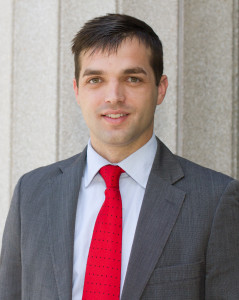By Travis Walker for BiolawToday blog
 This spring faculty from the Center for Law and Biomedicine[1] at the S.J. Quinney College of Law discussed a new and important concept – the right to be forgotten. Professors Jorge L. Contreras[2] and Leslie Francis[3] presented on data use and how the law should respond. The CLE[4] addressed the scope of personal information, developments in European courts, and the application of traditional law concepts to data that can be shared and mirrored instantly.
This spring faculty from the Center for Law and Biomedicine[1] at the S.J. Quinney College of Law discussed a new and important concept – the right to be forgotten. Professors Jorge L. Contreras[2] and Leslie Francis[3] presented on data use and how the law should respond. The CLE[4] addressed the scope of personal information, developments in European courts, and the application of traditional law concepts to data that can be shared and mirrored instantly.
First, both scholars contend that the right to be forgotten is complicated by the broad availability of personal information. Statements on social media and inaccurate notes on medical or financial records present the potential for harm. Moreover, because the American legal system treats privacy sectorally,[5] a person may have the right to correct information in one area but not in another. Lastly, jurisdiction poses a problem because a judicial order may have enforcement in a state or a country, but not for programs or websites hosted abroad. Information on crimes, membership in political or work organizations, ethnic origin, and religion can be stored[6] and viewed in many formats.
Second, Contreras and Francis discussed how traditional legal concepts might be problematic for data in the U.S. Contreras conveyed why data should not be thought of as de facto property. With the right to control, exclude, or destroy information as “property,” a person could prevent research or prejudice needed databases, like state public health systems. Rather than property, Contreras contends that liability for misuse or breach of consent for data is preferable to protect an individual – the goal, but not the means of the right to be forgotten. Contreras presented this idea in a recent talk[7] at Yale Law School, citing the power of damages, injunctions, and administrative penalties.
In contrast, Francis favors up-front protections since persons harmed by data have to pay to litigate a claim, and then recover funds if successful. This bar is prohibitive for some victims who have information stored on unauthorized platforms. Francis also expounded on the American legal system, which recognizes the right of individuals to outlive their past.[8] For example, juvenile criminal records are confidential and debts disappear from public record after a time. Notably, a third approach to protect information is through contracts,[9] though remedy is limited by the wording, the power of the court, and is ultimately inapplicable to unnamed parties.
Finally, Francis spoke on the right to be forgotten in European law. A fundamental change may soon occur as the European Parliament aims[10] to adopt a right to erasure, or the removal of information by a source and its associates. The law attempts to “empower citizens to manage their personal data” by weighing the sensitivity of published material against “the interest of the public in having that information.”[11] For other information like libel, courts in Europe have ordered search engines to delist[12] webpage links from results.
Beyond the spring presentation, the Faculty in the Center for Law and Biomedicine will continue to comment on the right to be forgotten. Contreras is interested in how privacy will affect “precision medicine”[13] and large-scale genetic research. Francis is exploring a non-consequentialist ethical approach to information protection; she holds that an advantage of the U.S. sectoral privacy structure is that it can recognize different values depending on the context. The right to be forgotten remains complicated by the scope of personal information available, developments in Europe, and how traditional law concepts should respond.
[1] See Center for Law and Biomedicine, S.J. Quinney College of Law, http://www.law.utah.edu/research/center-for-law-and-biomedical-sciences/ (last visited Apr. 17, 2015).
[2] See Jorge L. Contreras, Univ. of Utah, https://faculty.utah.edu/u0989706-JORGE_L_CONTRERAS/biography/index.hml (last visited Apr. 17, 2015).
[3] See Leslie Francis, Univ. of Utah, https://faculty.utah.edu/u0035587-LESLIE_FRANCIS/biography/index.hml (last visited Apr. 17, 2015).
[4] See Center for Law and Biomedicine at the S.J. Quinney College of Law, Facebook.com, https://www.facebook.com/sjquinneyLABS?fref=ts (last visited Apr. 17, 2015).
[5] Law is divided into many areas with distinct rights and remedies.
[6] See Types of Personal Data, BBC, http://www.bbc.co.uk/schools/gcsebitesize/ict/legal/0dataprotectionactrev4.shtml (last visited Apr. 17, 2015).
[7] See Jorge L. Conreras, Property Rules and Liability Rules for Genetic Data, BioLawToday.org (Mar. 31, 2015), http://www.law.utah.edu/property-rules-and-liability-rules-for-genetic-data/.
[8] See generally Meg Leta Ambrose, It’s About Time: Privacy, Information Life Cycles, and the Right to Be Forgotten, 16 Stan. Tech. L. Rev. 369 (2013).
[9] See Robert Kirk Walker, The Right to Be Forgotten, 64 Hastings L.J. 257, 278 (2012).
[10] See Neil Brady, Does the ‘Right of Erasure’ Pose a Bigger Threat than the ‘Right to Be Forgotten,’ The Guardian (July 10, 2014), http://www.theguardian.com/media-network/media-network-blog/2014/jul/10/right-forgotten-google-data-protection.
[11] Id.
[12] See Natasha Lomas, Google Faces Fight in Europe on Search Delisting, Tech Crunch (Feb. 6, 2015), http://techcrunch.com/2015/02/06/google-rtbf-report/.
[13] Precision Medicine Initiative, Nat’l Inst. of Health, http://www.nih.gov/precisionmedicine/ (last visited Mar. 31, 2015).
